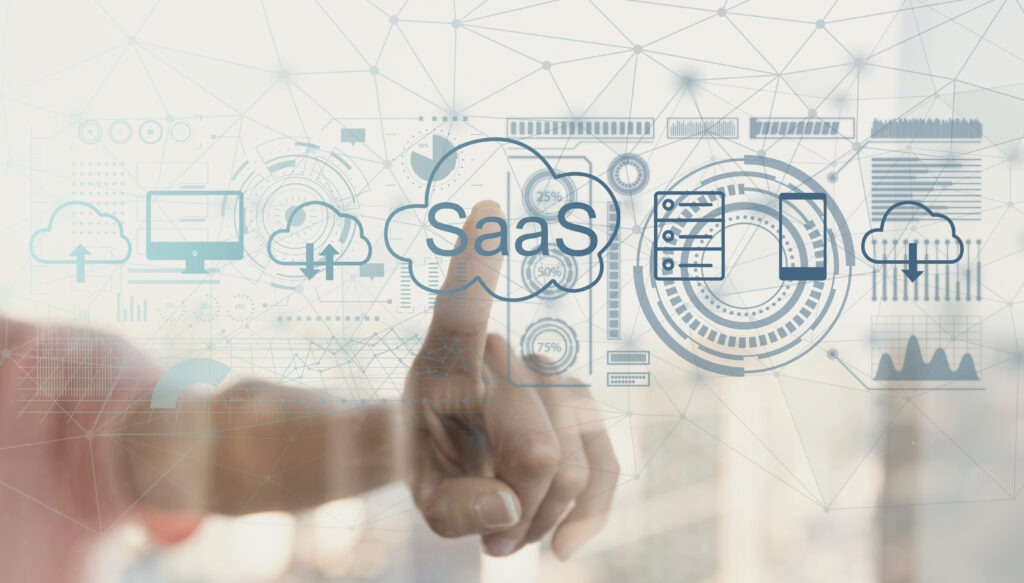
In today’s digital world, communication between businesses and customers often happens through Software as a Service (SaaS) platforms. These platforms have revolutionized how businesses operate, providing flexibility and scalability. However, with this innovation comes a responsibility to ensure that data privacy is upheld at the highest standard.
Have you ever wondered how much private data passes through your SaaS communication channels? Or, are you concerned that your platform might be vulnerable to data breaches that could ruin your business’s reputation?
Let’s explore why data privacy is crucial in SaaS communication and what best practices you can implement to protect your business and customers.
Why Data Privacy Matters in SaaS Communication
When using SaaS platforms, both businesses and customers share sensitive information—everything from email addresses to financial records. Ensuring that this data is secure and handled appropriately is critical not just for legal compliance but also for customer trust.
Consider the example of TechCloud, a SaaS startup that experienced a data breach exposing customer data, including billing information. The result was a wave of canceled subscriptions, customer dissatisfaction, and legal issues. All of this could have been avoided with stronger data privacy measures.
Data breaches in SaaS communication can cause irreparable harm to customer trust, resulting in heavy fines due to non-compliance with regulations like GDPR and HIPAA, and damage your brand reputation.
Key Data Privacy Concerns in SaaS Communication
When using SaaS platforms, several data privacy concerns arise, including:
- Unauthorized Access to Sensitive Information
SaaS platforms host vast amounts of personal and business data. If not properly secured, hackers can gain access to this information, leading to identity theft or misuse. - Data Transfer Between SaaS and Third-Party Integrations
Many SaaS solutions integrate with third-party apps for added functionality. However, these integrations often involve transferring sensitive data, making it vulnerable to interception if not adequately encrypted. - Compliance with Data Privacy Regulations
SaaS companies need to ensure they comply with local and international data privacy laws such as GDPR (General Data Protection Regulation) or CCPA (California Consumer Privacy Act).
Best Practices for Ensuring Data Privacy in SaaS Communication
Maintaining data privacy for your customers requires careful planning and implementing strong security protocols. Here are some best practices that can help ensure data privacy in SaaS communication:
1. Implement End-to-End Encryption for Communication
End-to-end encryption ensures that any data shared through SaaS communication channels is encrypted from the moment it leaves the user’s device until it reaches its destination. This means that even if the data is intercepted during transmission, it remains unreadable.
Why It Matters: Without encryption, data transferred via SaaS platforms can easily be intercepted by malicious actors. For example, SecureCom Solutions adopted end-to-end encryption for its messaging features, ensuring that client communications remained secure and confidential.
2. Use Multi-Factor Authentication (MFA)
Multi-factor authentication adds an extra layer of security by requiring users to provide two or more verification methods before accessing sensitive information. This could include something they know (password), something they have (security token), or something they are (biometric verification).
Example: FinTechCloud integrated MFA into its SaaS platform, which drastically reduced unauthorized access attempts and improved customer confidence.
3. Data Encryption at Rest and In Transit
Encrypting data at rest (when stored on servers) and in transit (while being transferred between systems) ensures that sensitive information is protected, even if a breach occurs. This means that even if an attacker gains access to the data, they cannot easily read or use it.
4. Adhere to Data Privacy Regulations
SaaS providers must comply with regional and global data privacy laws like GDPR, HIPAA, or CCPA. Understanding the requirements of these regulations and ensuring your platform meets them is crucial to avoiding legal repercussions.
For example, GDPR compliance mandates that SaaS companies must allow users to control their data, including the right to be forgotten. Non-compliance can result in hefty fines and loss of business reputation.
5. Regular Privacy Audits
Conducting regular privacy audits helps SaaS providers identify vulnerabilities in their data privacy practices. These audits should check for weak spots in security protocols, ensure encryption is up-to-date, and verify compliance with the latest regulations.
6. Minimize Data Collection
SaaS providers should only collect the data that is absolutely necessary. The more data collected, the more difficult it becomes to ensure its security. Limiting data collection minimizes the risk in the event of a breach.
Real-Life Example of SaaS Data Breach and Its Consequences
In 2021, a major SaaS company, DataVault, suffered a significant data breach that exposed sensitive customer information, including usernames, passwords, and payment details. The breach led to widespread distrust in the platform, a mass exodus of users, and a substantial fine under GDPR.
What Went Wrong? DataVault did not have proper encryption measures in place for its communication channels, and the breach occurred through a third-party integration that lacked adequate security protocols.

How to Protect Data Privacy in SaaS Communication: A Step-by-Step Guide
- Ensure Transparency in Data Collection
Always inform users about the type of data you collect, why it’s collected, and how it’s used. Provide clear privacy policies and obtain consent where necessary. - Use Secure Cloud Providers
Ensure that the cloud provider you use for your SaaS platform complies with data privacy regulations and offers strong encryption and security protocols. - Secure APIs and Third-Party Integrations
Regularly review and update API security to ensure third-party integrations don’t create vulnerabilities. Use secure methods of data exchange between your platform and third-party services. - Train Employees on Data Privacy Best Practices
Internal breaches and human error are significant causes of data privacy incidents. Regular training for employees on the importance of data privacy and how to avoid breaches is essential.
The Role of Compliance in Data Privacy for SaaS Communication
SaaS platforms handle large amounts of personal and business data, making compliance with data privacy regulations essential. Here’s an overview of key regulations:
1. GDPR (General Data Protection Regulation)
For SaaS companies operating in Europe, GDPR is the gold standard for data privacy. It mandates transparency in data collection, the right for users to control their data, and the requirement for businesses to report breaches within 72 hours.
2. CCPA (California Consumer Privacy Act)
For SaaS providers dealing with California residents, CCPA requires businesses to be transparent about the data they collect and how it’s used. Consumers must also be allowed to opt out of data collection.
Benefits of a Secure SaaS Communication System
Using a secure communication system for SaaS has numerous benefits:
- Customer Trust: Clients feel confident knowing their data is secure, leading to increased retention and brand loyalty.
- Compliance: Avoid legal issues and fines by ensuring compliance with data privacy regulations.
- Data Security: With encryption, multi-factor authentication, and regular audits, your platform is safeguarded against breaches.
Our tailored SaaS communication solution ensures that all these best practices are implemented, offering you the highest standard of data privacy and security.
Table of Contents
Data privacy isn’t optional—it’s a fundamental requirement for any SaaS provider. By following the best practices outlined in this article, including end-to-end encryption, regular audits, and compliance with data privacy regulations, you can protect sensitive information and foster trust with your users.
Start securing your SaaS communication today with our robust and compliant solutions. Contact us to learn how we can help protect your business and customer data.






